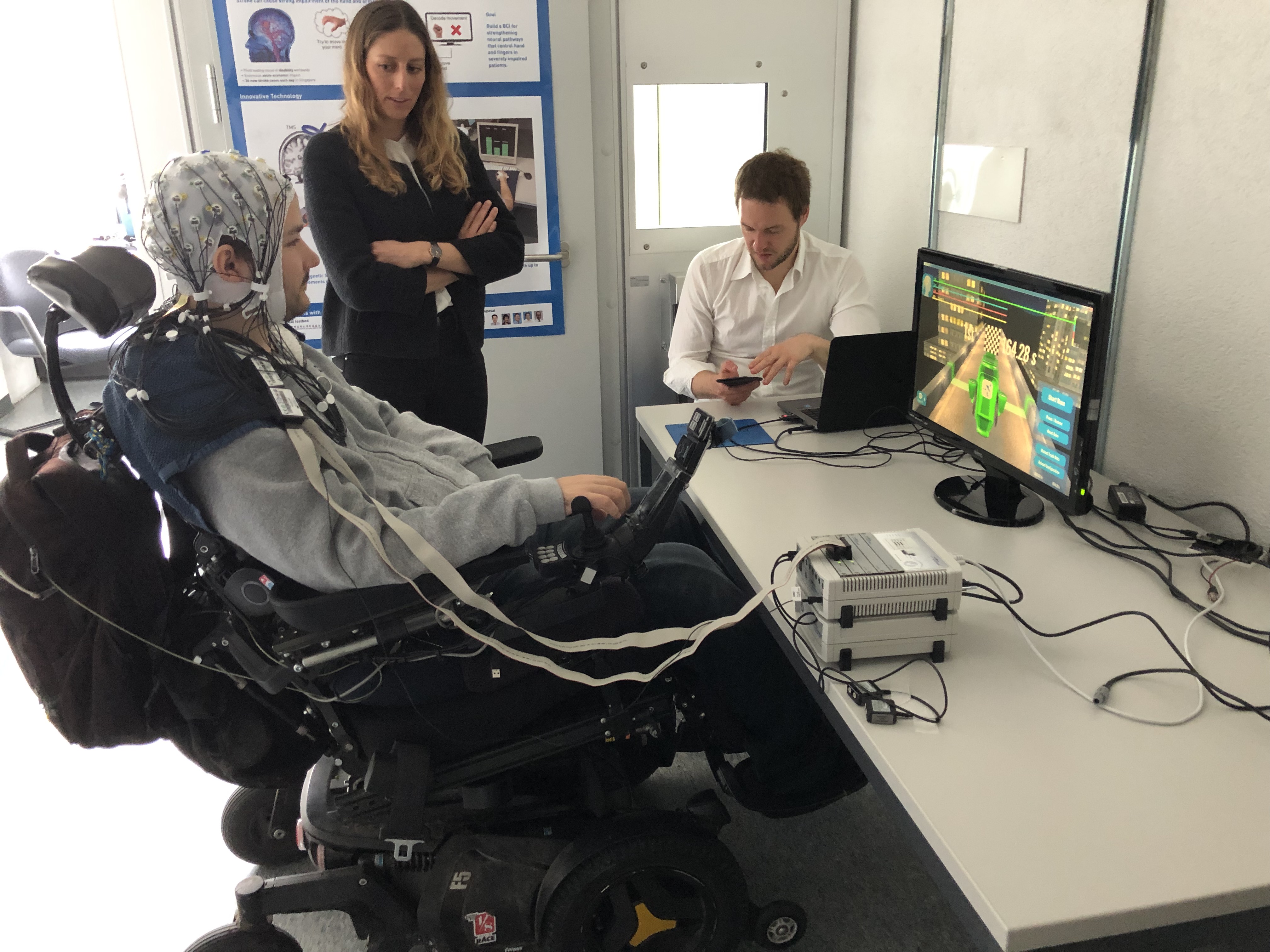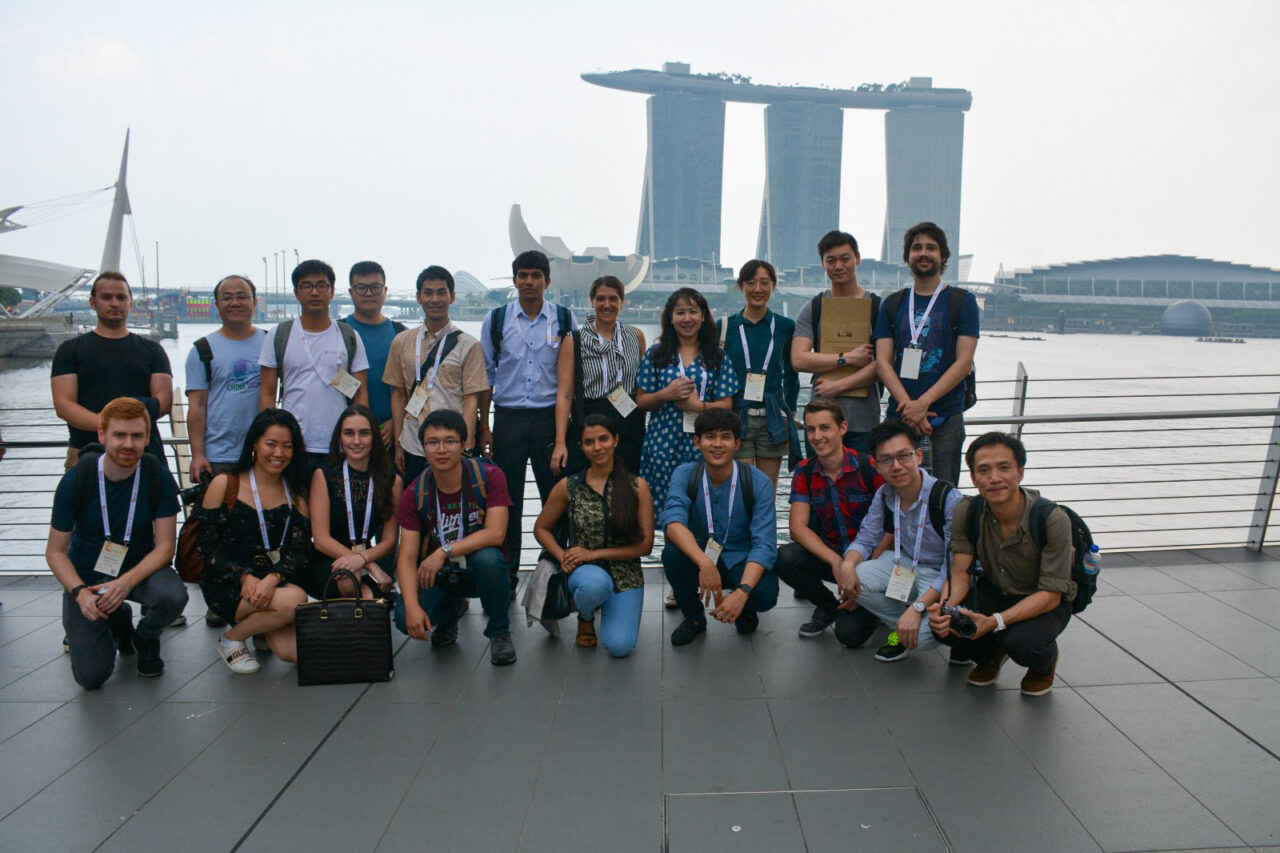Despite being paralyzed, this man can control the motion of an on-screen avatar in a specially developed video game called, “BrainDriver.”
Samuel Kunz played competitive handball and liked to snowboard, but in a second his life changed completely. A swimming accident resulted in quadriplegia – leaving him paralyzed and not able to move his legs or even his fingers. However, through a brain-computer interface (BCI), he can now control the motion of an on-screen avatar in a specially developed video game called, “BrainDriver.”
Using only his thoughts, Kunz controls the motion of the avatar directing his brain signals through focus and visualization. Kunz is a pilot – a disabled person testing out new technology – for the Future Health Technologies team out of the Singapore-ETH Centre. He and the team are preparing for an international competition called, “CYBATHLON.” CYBATHLON 2020 anticipates more than 90 teams consisting of pilots who are also members of teams of researchers and developers who design state-of-the-art technologies enabling disabled persons to complete everyday tasks. Fourteen of these teams will be competing in the Brain-Computer Interface race on 2 – 3 May 2020 in Zurich, Switzerland.
Samuel Kunz played competitive handball and liked to snowboard, but in a second his life changed completely. A swimming accident resulted in quadriplegia – leaving him paralyzed and not able to move his legs or even his fingers. However, through a brain-computer interface (BCI), he can now control the motion of an on-screen avatar in a specially developed video game called, “BrainDriver.”
Using only his thoughts, Kunz controls the motion of the avatar directing his brain signals through focus and visualization. Kunz is a pilot – a disabled person testing out new technology – for the Future Health Technologies team out of the Singapore-ETH Centre. He and the team are preparing for an international competition called, “CYBATHLON.” CYBATHLON 2020 anticipates more than 90 teams consisting of pilots who are also members of teams of researchers and developers who design state-of-the-art technologies enabling disabled persons to complete everyday tasks. Fourteen of these teams will be competing in the Brain-Computer Interface race on 2 – 3 May 2020 in Zurich, Switzerland.




